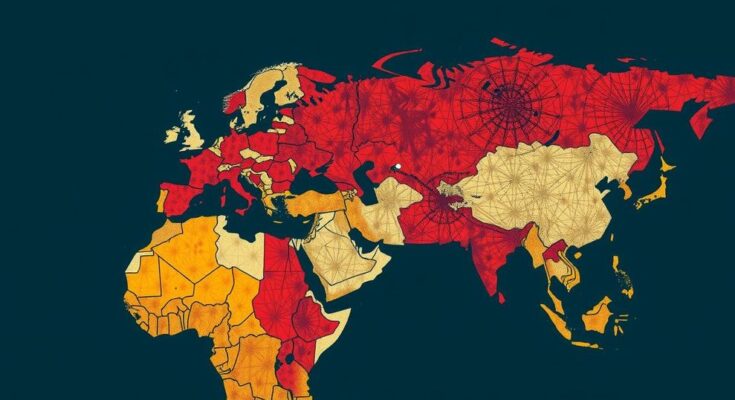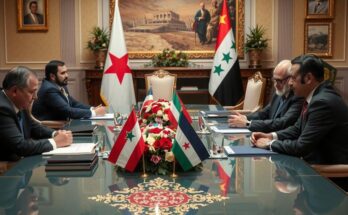The RJMEC chairperson, Ambassador Maj. Gen. Charles Tai Gituai, identified key challenges impeding the implementation of South Sudan’s peace deal, including a lack of political will, trust deficit, and insufficient funding. He urged the RTGoNU to mobilize resources and enhance women’s representation in governance to foster lasting peace and stability.
The chairperson of the Reconstituted Joint Monitoring and Evaluation Commission (RJMEC), Ambassador Maj. Gen. Charles Tai Gituai, addressed major impediments to the implementation of South Sudan’s peace agreement during the commission’s recent monthly meeting in Juba. He highlighted critical issues including a persistent trust deficit, inadequate political commitment, and insufficient funding as significant hurdles to progress. Ambassador Gituai emphasized the necessity for the Revitalized Transitional Government of National Unity (RTGoNU) to actively mobilize resources for fulfilling its responsibilities under the peace agreement, suggesting that this would signify true dedication to the peace process. Furthermore, he called for alignment among various institutions to efficiently tackle tasks such as budget planning and resource mobilization within the extended transitional period. The RJMEC chairperson expressed concern regarding the ongoing cycle of transitions in South Sudan, emphasizing the urgency of completing critical pending tasks—particularly those related to constitutional reforms, electoral processes, and the unification of military forces—in a timely manner to ensure scheduled elections occur. Furthermore, he underscored the importance of enhancing the representation of women in leadership roles, advocating for an increase beyond the established 35 percent minimum. Ambassador Gituai affirmed that women’s participation is vital to achieving enduring peace and stability in South Sudan, urging the RTGoNU to secure funding while increasing women’s representation in both executive and legislative capacities.
In South Sudan, the implementation of the peace agreement is fraught with challenges that continue to undermine political stability and societal peace. The RJMEC plays a crucial role in monitoring the implementation of the peace deal, which was intended to end ongoing conflict within the nation. Key among the challenges outlined by Ambassador Gituai are a lack of political will, insufficient funding commitments, and the need for enhanced cooperation among the various institutions involved in the peace process. Addressing these issues is essential for the RTGoNU to demonstrate its commitment to peace and governance, especially in light of the critical role women must play in political and peacebuilding processes.
In conclusion, the RJMEC’s observations highlight the pressing need for the South Sudanese leadership to overcome the trust deficit and demonstrate political will to successfully implement the peace agreement. With dedicated resource mobilization and a commitment to inclusivity, particularly in increasing women’s representation in governance, South Sudan can move closer to achieving lasting peace. The urgency of addressing the outstanding tasks is clear, as the timeline for elections approaches, calling for coordinated efforts and strategic planning.
Original Source: sudantribune.com




